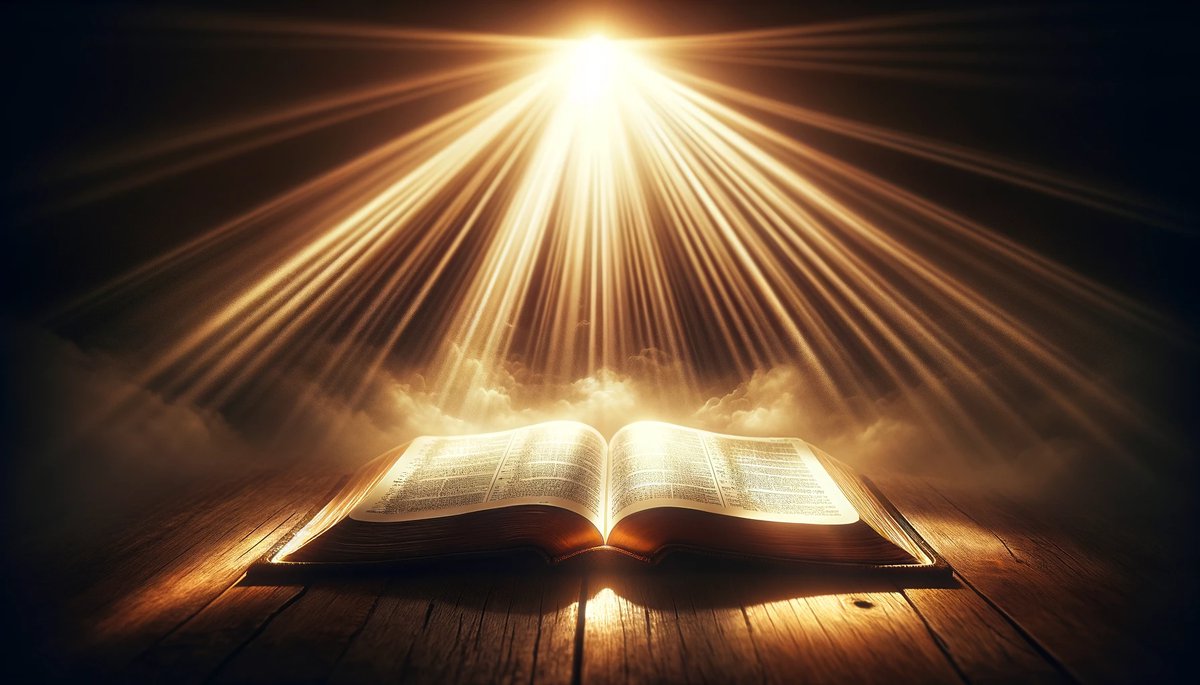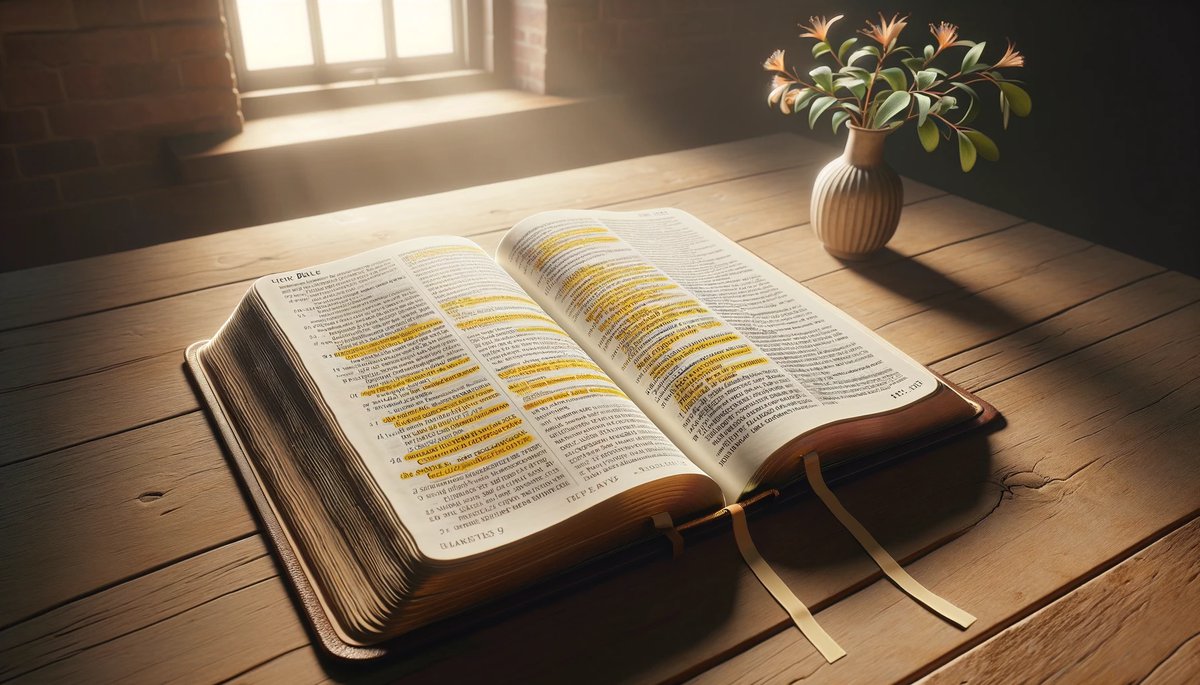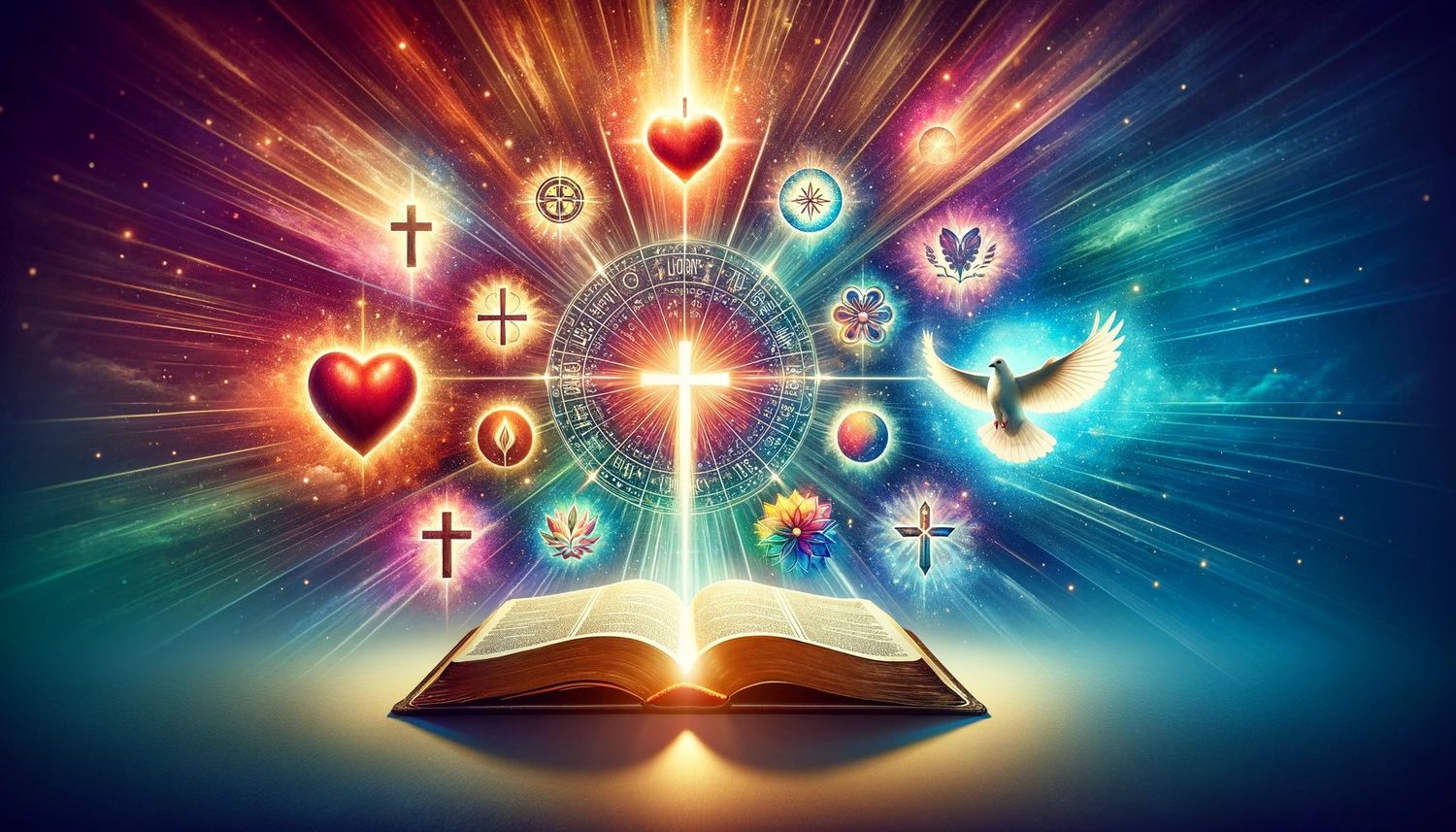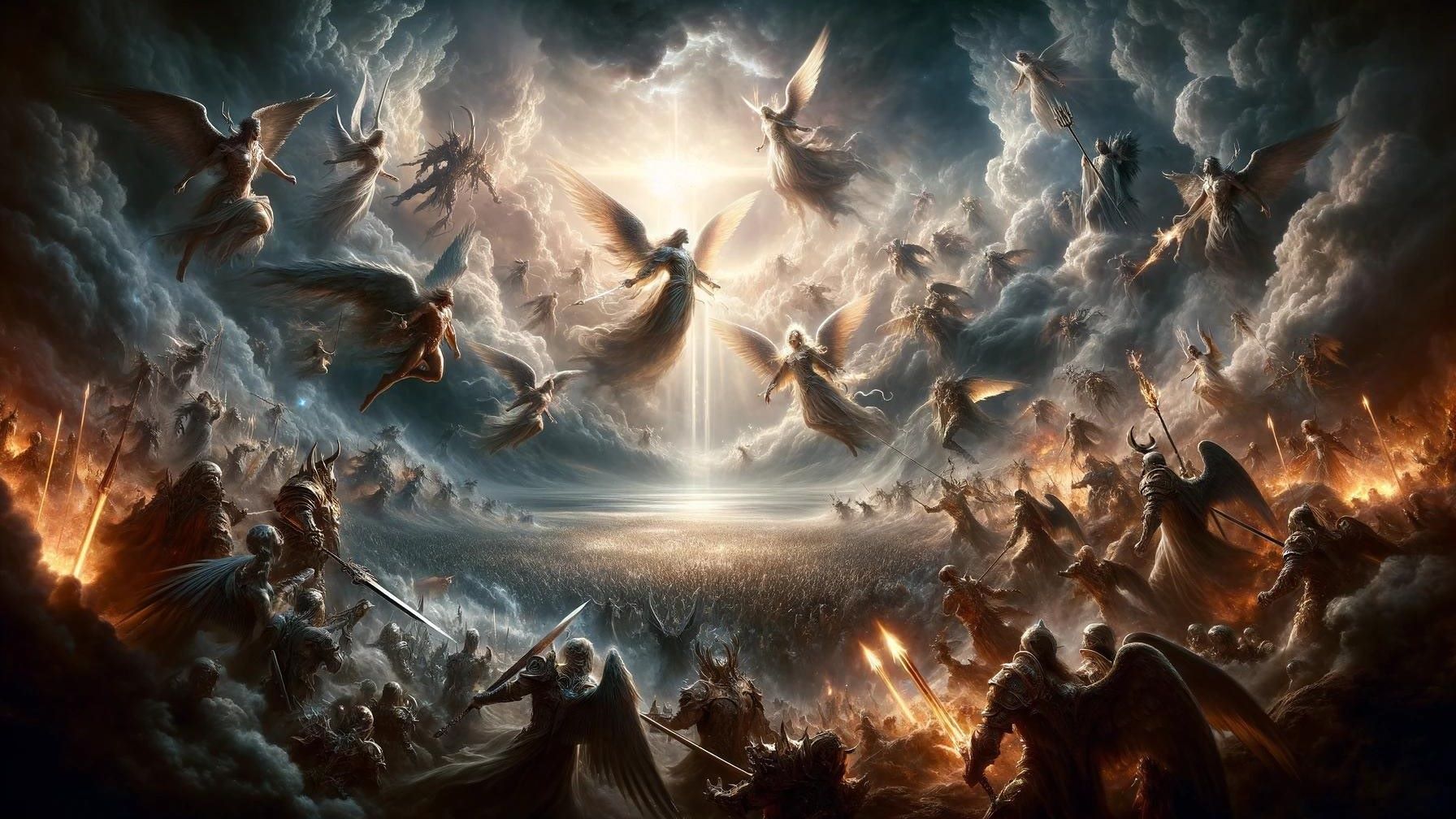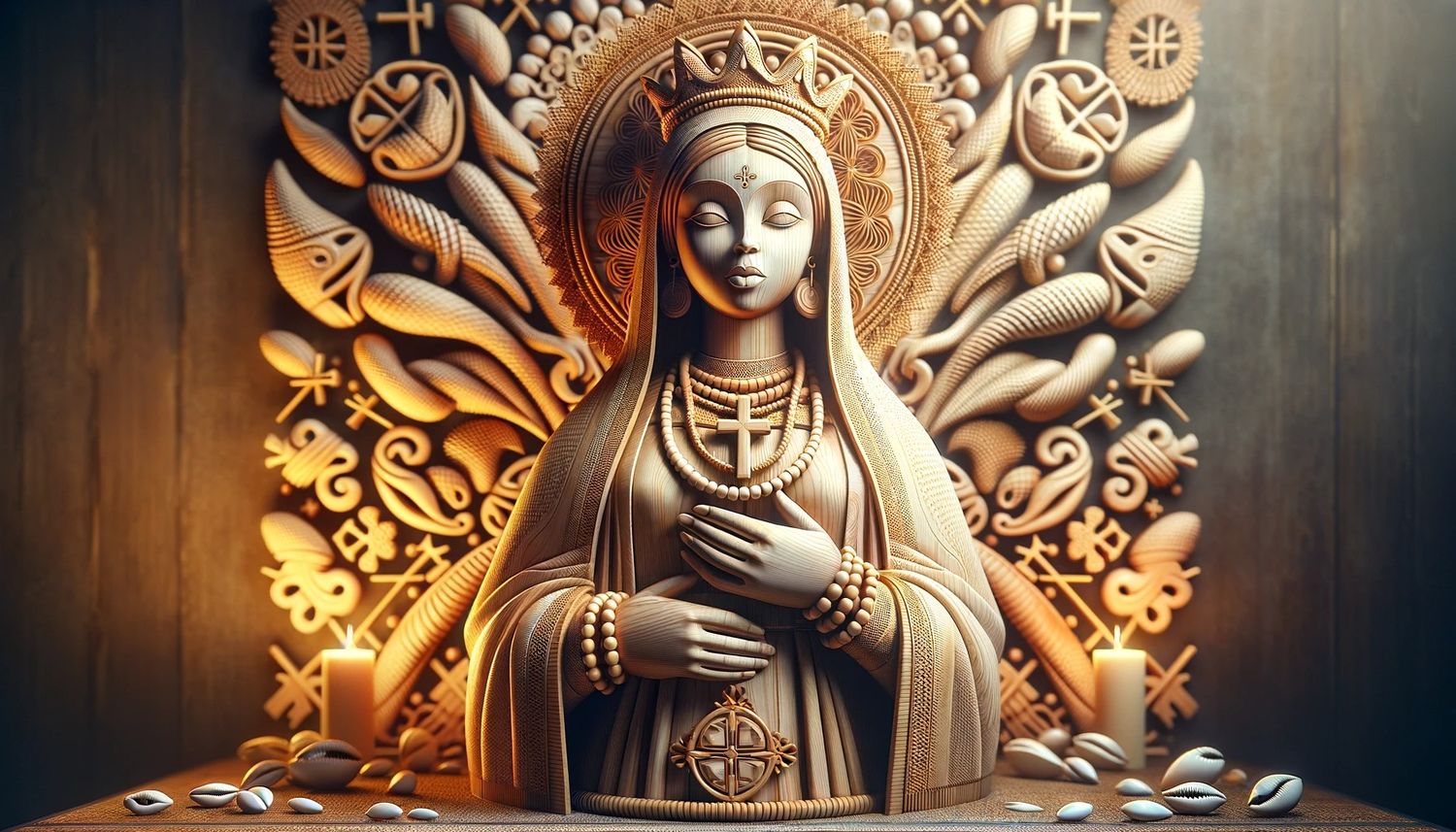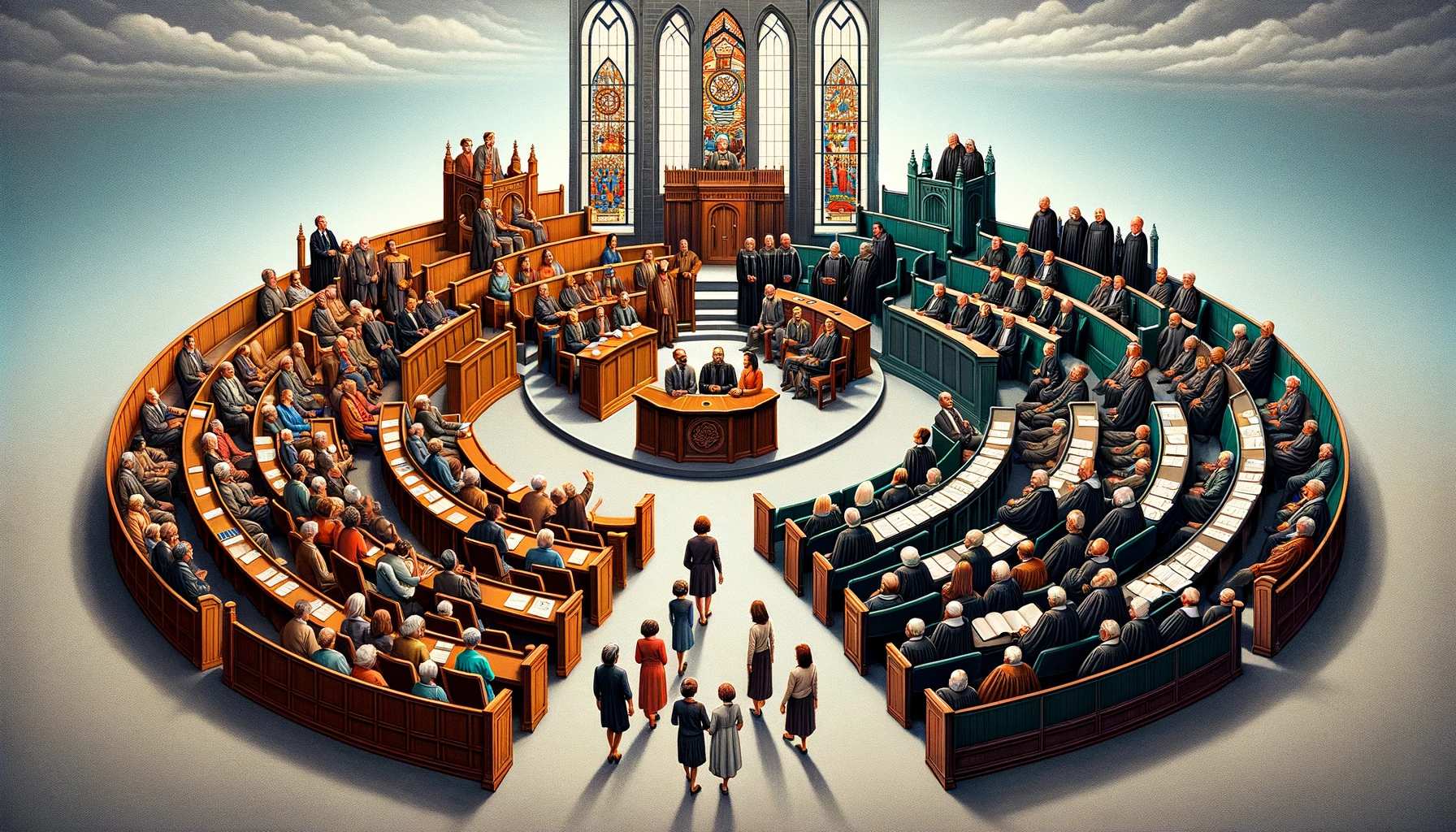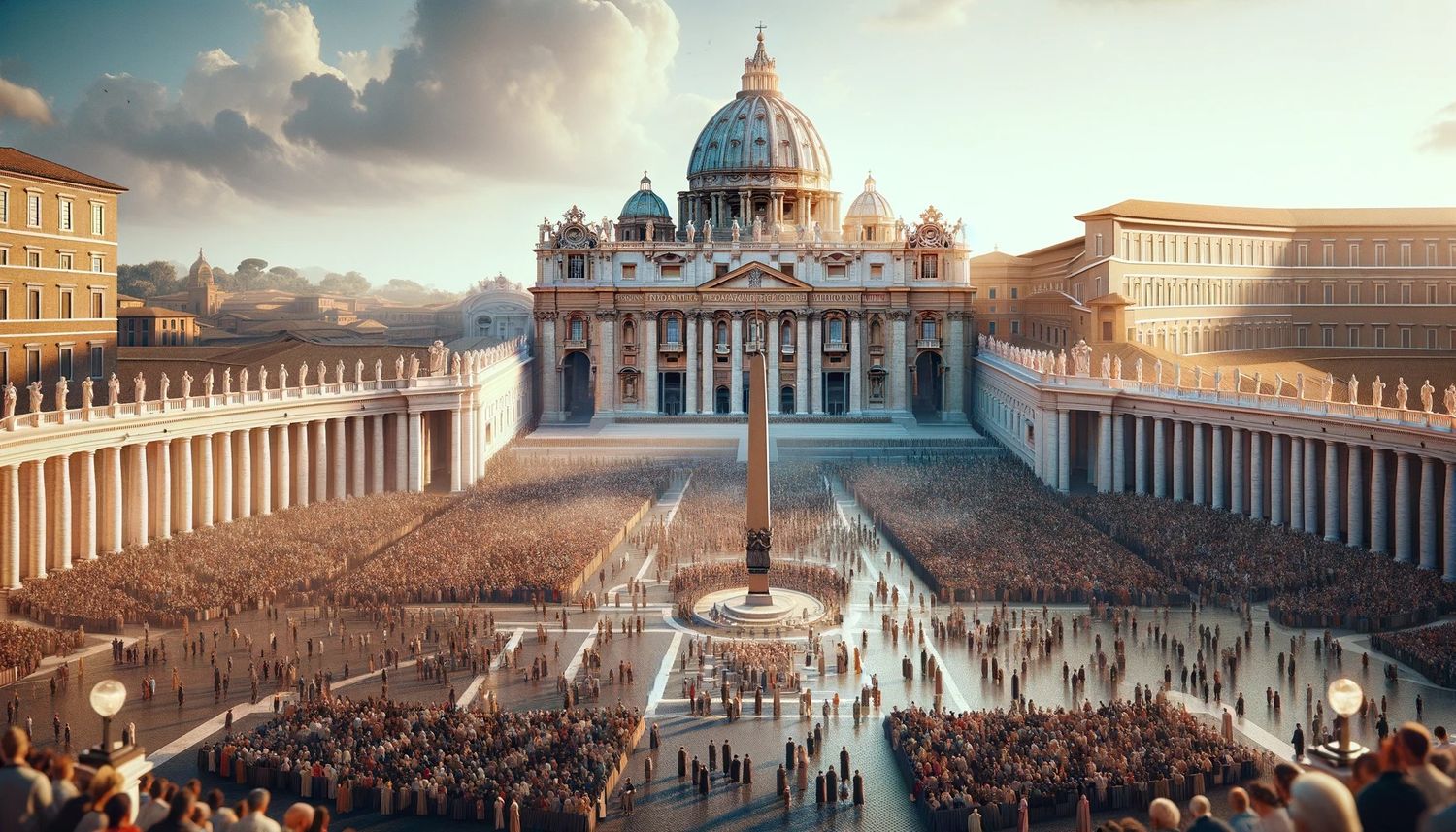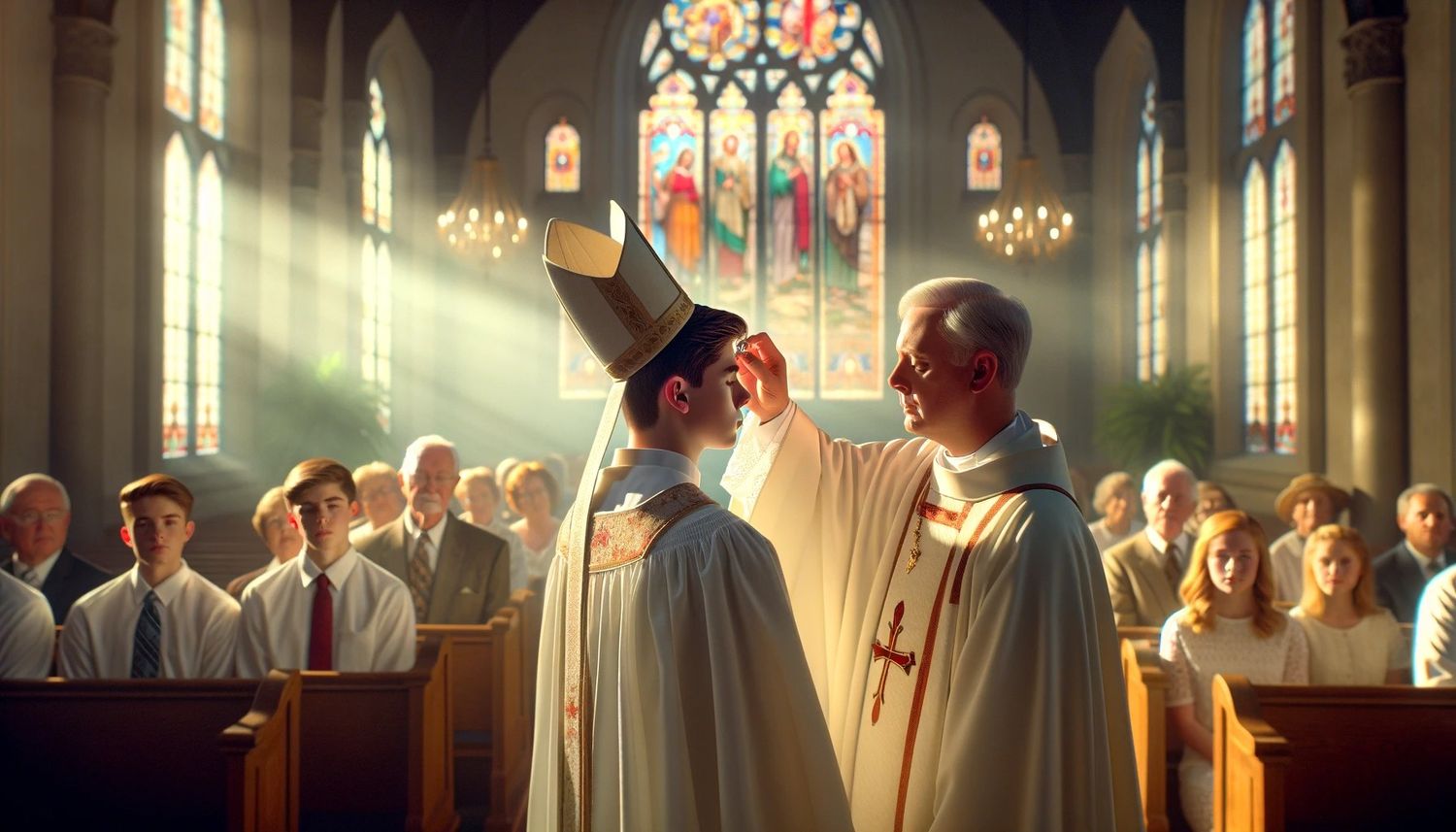Home>Theology and Spirituality>What Are The Major Beliefs Of Catholicism


Theology and Spirituality
What Are The Major Beliefs Of Catholicism
Published: February 15, 2024
Jason DeRose, Managing Editor at Christian.net, uses his expertise in religion and journalism to deepen understanding of faith's societal impacts. His editorial leadership, coupled with a strong academic background, enriches the platform’s diverse content, earning him recognition in both journalism and religious circles.
Discover the major beliefs of Catholicism and explore its theology and spirituality. Gain insights into the core principles of the faith.
(Many of the links in this article redirect to a specific reviewed product. Your purchase of these products through affiliate links helps to generate commission for Christian.net, at no extra cost. Learn more)
Table of Contents
Introduction
Catholicism, one of the oldest and most widespread Christian traditions, encompasses a rich tapestry of beliefs, practices, and traditions that have shaped the lives of millions of adherents for centuries. At its core, Catholicism is centered on the life, teachings, and sacrificial death of Jesus Christ, whom Catholics believe to be the Son of God and the savior of humanity. The doctrines and tenets of Catholicism are derived from the Bible, sacred tradition, and the teachings of the Magisterium, the Church's authoritative teaching body.
Central to Catholic belief is the concept of the Trinity, which asserts that God exists as three persons in one divine essence: the Father, the Son, and the Holy Spirit. This foundational belief underscores the interconnectedness of the divine and serves as a cornerstone of Catholic theology.
Moreover, Catholicism places a profound emphasis on the Virgin Mary, venerating her as the Mother of God and a model of faith and devotion. The role of Mary in Catholic theology is a source of deep reverence and devotion, with her intercessory prayers considered to be powerful and efficacious.
The veneration of saints is another distinctive aspect of Catholic belief, with saints serving as exemplars of virtuous living and sources of inspiration for believers. Catholics often seek the intercession of saints in their prayers, viewing them as heavenly advocates who can intercede on their behalf before God.
Furthermore, the sacraments hold a central position in Catholic theology, serving as visible signs of God's grace and channels of divine life. These sacred rituals, including baptism, the Eucharist, and confession, are regarded as essential means through which believers encounter the saving power of Christ.
In addition to these core beliefs, Catholicism places a strong emphasis on the authority of the Church hierarchy, the significance of the Bible as the inspired word of God, and the profound hope of salvation and grace offered through Christ's redemptive work.
As we delve deeper into the major beliefs of Catholicism, we will explore the theological underpinnings, historical developments, and spiritual significance of each tenet, gaining a deeper understanding of the enduring faith that has shaped the lives of countless individuals across the globe.
The Trinity
The doctrine of the Trinity stands as a foundational belief within Catholic theology, encapsulating the profound mystery of God's triune nature. At its core, the Trinity affirms that God exists as three distinct persons—Father, Son, and Holy Spirit—while remaining one divine essence. This concept is not only central to Catholicism but also serves as a cornerstone of Christian faith worldwide.
The first person of the Trinity, God the Father, is revered as the creator and sustainer of the universe, embodying divine authority and providential care. The second person, Jesus Christ, is acknowledged as the Son of God, whose incarnation, sacrificial death, and resurrection form the crux of Christian salvation. The Holy Spirit, the third person of the Trinity, is revered as the divine presence that empowers and guides believers, fostering spiritual growth and illuminating the truth of God's Word.
The Trinitarian belief underscores the interconnectedness and unity of the divine, while also recognizing the distinct roles and functions of each person within the Godhead. This complex yet profound understanding of God's nature reflects the depth of divine mystery and invites believers into a deeper exploration of the multifaceted nature of the divine.
In Catholic theology, the Trinity serves as the foundation for understanding God's relational nature and the dynamic interplay between divine unity and diversity. The doctrine of the Trinity also informs the Church's liturgical life, shaping prayers, hymns, and creeds that articulate the communal confession of faith in the triune God.
Furthermore, the Trinitarian belief underscores the significance of relationship and communion within the Godhead, serving as a model for human relationships and emphasizing the value of unity amidst diversity. This theological framework invites believers to embrace the interconnectedness of the divine persons and to cultivate a deeper appreciation for the richness of God's triune nature.
Ultimately, the doctrine of the Trinity stands as a testament to the depth and complexity of God's nature, inviting believers to embrace the mystery of the divine while affirming the unity and diversity inherent within the Godhead. This foundational belief continues to shape the spiritual identity of Catholics worldwide, serving as a profound expression of the enduring mystery and majesty of the triune God.
The Virgin Mary
The veneration of the Virgin Mary holds a central and revered position within Catholic theology, embodying a profound symbol of faith, purity, and maternal intercession. Mary, the mother of Jesus, is esteemed as the Theotokos, the Mother of God, and her role in salvation history is regarded with utmost reverence and devotion.
In Catholic belief, Mary's significance transcends her earthly role as the mother of Jesus. She is revered as the epitome of faith and obedience, exemplifying unwavering devotion to God's will. Her pivotal role in the incarnation of Christ underscores her unique and exalted status within Christian tradition. The doctrine of the Immaculate Conception further emphasizes Mary's purity and freedom from original sin, positioning her as a vessel of divine grace and holiness.
The devotion to Mary extends beyond her historical role, as Catholics view her as a compassionate intercessor and advocate for humanity. Through prayers and supplications to Mary, believers seek her maternal guidance and assistance, trusting in her ability to intercede on their behalf before God. The veneration of Mary as the Queen of Heaven and the Mother of the Church reflects her enduring influence and maternal care for all believers.
Moreover, Mary's presence in Catholic spirituality is manifested through various devotions, Marian apparitions, and the recitation of the Rosary. These practices serve as expressions of love, gratitude, and petition to Mary, acknowledging her as a source of comfort, solace, and spiritual guidance.
The theological significance of Mary in Catholicism also extends to her role as a model of discipleship and faith. Her steadfast commitment to God's plan, as evidenced in the Annunciation and her unwavering presence at the foot of the cross, serves as an inspiration for believers to emulate her virtues of humility, obedience, and trust in God's providence.
In essence, the veneration of the Virgin Mary stands as a testament to her enduring influence and spiritual presence within Catholic tradition. Her maternal intercession, exemplary faith, and profound significance in salvation history continue to resonate deeply with believers, fostering a sense of spiritual connection and maternal care within the hearts of the faithful. Mary's enduring legacy as the Mother of God and the embodiment of faith remains a cherished and integral aspect of Catholic devotion and spirituality.
The Saints
The veneration of saints holds a prominent place within Catholic theology, reflecting a deep reverence for individuals who have exemplified extraordinary holiness, virtue, and devotion in their lives. Saints are revered as spiritual companions and intercessors, offering believers profound inspiration and guidance on their spiritual journey.
In Catholic belief, saints are viewed as exemplars of faith, embodying the transformative power of God's grace in their lives. Their unwavering commitment to Christian virtues, acts of charity, and steadfast devotion to God serve as compelling examples for believers to emulate. The lives of saints, often marked by selflessness, courage, and resilience in the face of adversity, offer a source of encouragement and hope for those navigating the complexities of human existence.
The veneration of saints is not rooted in the worship of these individuals, but rather in the recognition of their sanctity and their intimate union with God in heaven. Saints are regarded as members of the "communion of saints," a spiritual fellowship that encompasses the living faithful, the souls undergoing purification in purgatory, and the saints in heaven. This communion underscores the interconnectedness of the mystical body of Christ, where believers on earth seek the intercession and prayers of the saints, who, in turn, offer their supplications on behalf of the faithful before God.
Furthermore, the veneration of saints is manifested through various devotional practices, including the dedication of churches, shrines, and religious artwork to specific saints, as well as the celebration of feast days in honor of their lives and contributions to the faith. The recitation of prayers and litanies invoking the intercession of saints is a cherished tradition, reflecting the belief in their ability to advocate for the needs and concerns of believers before the throne of God.
The lives of saints, as chronicled in hagiographies and religious traditions, serve as a rich tapestry of spiritual wisdom and inspiration. Their diverse backgrounds, experiences, and cultural contexts offer a mosaic of holiness that resonates with believers across different walks of life. Whether it is the courage of martyrs, the compassion of healers, or the wisdom of theologians, the lives of saints reflect the universal call to holiness and the transformative power of God's grace in the human experience.
In essence, the veneration of saints in Catholicism reflects a profound appreciation for the diversity of human holiness and the enduring impact of exemplary lives lived in service to God and others. The saints stand as beacons of hope and inspiration, guiding believers toward a deeper commitment to faith, virtue, and selfless love. Their spiritual presence continues to enrich the tapestry of Catholic tradition, offering a timeless testament to the transformative power of divine grace in the lives of individuals throughout history.
The Sacraments
The sacraments occupy a central and sacred position within Catholic theology, serving as visible signs of God's grace and channels through which believers encounter the saving power of Christ. Rooted in the teachings of Jesus Christ and the apostolic tradition, the sacraments are tangible expressions of God's presence and transformative love in the lives of believers.
In Catholic belief, the sacraments are efficacious signs instituted by Christ, through which divine life is dispensed to the faithful. They are sacred rituals that convey God's grace and serve as pivotal moments of encounter with the divine. The seven sacraments—Baptism, Confirmation, Eucharist, Reconciliation, Anointing of the Sick, Holy Orders, and Matrimony—embody distinct dimensions of the Christian journey, marking significant milestones in the spiritual life of believers.
Baptism, the sacrament of initiation, signifies the incorporation into the body of Christ and the reception of the Holy Spirit, marking the beginning of the Christian journey. Confirmation, often referred to as the sacrament of empowerment, strengthens the bond with the Church and bestows the gifts of the Holy Spirit, empowering believers for their mission in the world. The Eucharist, the sacrament of the body and blood of Christ, represents the pinnacle of Christian worship, uniting believers with Christ's sacrifice and nourishing them with spiritual sustenance.
Reconciliation, also known as the sacrament of penance or confession, offers the gift of God's mercy and forgiveness, reconciling the faithful with God and the Church. The Anointing of the Sick provides spiritual healing and strength to those facing illness or adversity, offering comfort and grace in times of physical and emotional distress. Holy Orders, the sacrament of ministry, ordains individuals for leadership and service within the Church, empowering them to shepherd and guide the faithful. Matrimony, the sacrament of union, sanctifies the covenant of marriage, uniting spouses in a bond of love and fidelity.
The sacraments, through their visible elements and divine significance, serve as profound encounters with the living God, fostering spiritual growth, healing, and communion within the body of Christ. They embody the transformative power of God's grace, inviting believers into deeper intimacy with Christ and the community of faith. The sacraments stand as enduring expressions of God's love and presence, shaping the spiritual identity of believers and nurturing their journey of faith.
The Bible
The Bible, revered as the sacred scripture of Christianity, holds a position of profound significance within Catholic theology. Comprising the Old Testament and the New Testament, the Bible serves as the inspired word of God, conveying divine revelation and guiding believers in matters of faith, morality, and spiritual understanding.
In Catholic belief, the Bible is regarded as the written testimony of God's self-disclosure to humanity, encompassing a rich tapestry of narratives, teachings, prophecies, and wisdom literature. The Old Testament, inherited from Jewish tradition, offers insights into the history of God's covenant with the people of Israel, the moral precepts guiding human conduct, and the prophetic voices calling for justice and righteousness. The New Testament, centered on the life, teachings, death, and resurrection of Jesus Christ, serves as the cornerstone of Christian faith, offering a message of redemption, hope, and salvation.
The Catholic Church upholds the Bible as a source of divine authority and spiritual nourishment, encouraging believers to engage with its sacred texts through prayer, study, and reflection. The reading of scripture is integral to the liturgical life of the Church, with passages from the Old and New Testaments forming the basis of the lectionary, guiding the communal worship and proclamation of God's word.
Moreover, the interpretation of the Bible within Catholic tradition is guided by the principles of sacred tradition and the Magisterium, the teaching authority of the Church. The interplay between scripture, tradition, and the Church's authoritative interpretation ensures a holistic and faithful understanding of the biblical message, safeguarding it from misinterpretation and distortion.
The Bible serves as a wellspring of spiritual wisdom, offering guidance, comfort, and inspiration to believers in their daily lives. Its narratives of faith, perseverance, and divine providence resonate with the human experience, providing timeless lessons and insights that continue to shape the moral conscience and spiritual identity of Catholics worldwide.
In essence, the Bible stands as a cherished and foundational pillar of Catholic faith, embodying the living word of God that speaks to the hearts and minds of believers across generations. Its enduring relevance and transformative power continue to illuminate the path of faith, inviting believers into a deeper encounter with the divine and a richer understanding of God's redemptive plan for humanity.
The Church Hierarchy
The Church hierarchy within Catholicism encompasses a structured framework of ordained ministers and ecclesiastical offices that serve to guide, govern, and nurture the spiritual life of the faithful. At the apex of this hierarchical structure is the Pope, who serves as the visible head of the Catholic Church and the successor of Saint Peter, to whom Christ entrusted the leadership of the Church. The Pope, also known as the Bishop of Rome, holds the authority to teach, sanctify, and govern the Church, embodying a symbol of unity and pastoral care for Catholics worldwide.
Beneath the papal office, the College of Cardinals, consisting of senior bishops and archbishops, plays a crucial role in the governance of the Church. The cardinals serve as advisors to the Pope and participate in the papal conclave, where they elect a new Pope upon the vacancy of the papal office. Their collective wisdom and experience contribute to the discernment of key decisions and the administration of the Church's affairs.
The episcopal hierarchy comprises bishops, who are entrusted with the pastoral care of dioceses or eparchies, and archbishops, who oversee larger ecclesiastical jurisdictions known as archdioceses. Bishops, as successors of the apostles, bear the responsibility of teaching, sanctifying, and governing their respective dioceses, shepherding the faithful and safeguarding the integrity of the Church's teachings and sacramental life.
Additionally, the clergy, including priests and deacons, form an essential part of the Church's hierarchical structure. Priests, ordained to serve as co-workers with the bishops, administer the sacraments, preach the Gospel, and provide spiritual guidance to the faithful within their parishes. Deacons, ordained for service, assist in liturgical celebrations, charitable works, and pastoral outreach, embodying a ministry of service and compassion within the Church and the broader community.
The hierarchical structure of the Church reflects a balance of authority, collegiality, and pastoral responsibility, ensuring the continuity of apostolic succession and the preservation of authentic Christian teaching and worship. This hierarchical order, rooted in the apostolic tradition and guided by the Holy Spirit, serves to foster unity, accountability, and spiritual nourishment within the body of Christ, enabling the Church to fulfill its mission of proclaiming the Gospel and shepherding God's people with love and fidelity.
Salvation and Grace
Salvation and grace stand as fundamental pillars of Catholic theology, embodying the transformative power of God's redemptive love and the profound hope offered to humanity through the salvific work of Jesus Christ. At the heart of Catholic belief is the understanding that salvation is a gift freely bestowed by God, rooted in His boundless mercy and love for all creation. The concept of grace, as divine favor and assistance, serves as the means through which God's saving love is extended to humanity, enabling individuals to respond to His invitation to reconciliation and communion.
In Catholic theology, salvation is understood as the deliverance from sin and the restoration of right relationship with God. The redemptive act of Jesus Christ, culminating in His sacrificial death and resurrection, serves as the definitive expression of God's saving love for humanity. Through His atoning sacrifice, Christ offers the gift of salvation to all who embrace Him in faith, inviting them into a transformative journey of spiritual renewal and communion with God.
Grace, as the unmerited favor of God, plays a pivotal role in the process of salvation. It is through God's grace that individuals are empowered to respond to His call, to turn away from sin, and to embrace the life of discipleship. The Catholic understanding of grace encompasses both sanctifying grace, which transforms the soul and enables participation in the divine life, and actual grace, which provides assistance for specific acts of faith, charity, and virtue.
The sacraments, particularly baptism and the Eucharist, are regarded as tangible expressions of God's grace, conveying the saving power of Christ to believers. Through baptism, individuals are initiated into the body of Christ, cleansed from sin, and reborn as children of God. The Eucharist, as the source and summit of the Christian life, nourishes believers with the body and blood of Christ, fostering spiritual growth and communion with the divine.
Furthermore, the Catholic understanding of salvation and grace emphasizes the cooperative nature of God's redemptive work and human response. While salvation is a gift freely offered by God, individuals are called to cooperate with His grace, to cultivate a life of holiness, and to participate in the ongoing work of redemption within the world.
In essence, the concepts of salvation and grace within Catholic theology reflect the profound depth of God's love for humanity and the transformative power of His redemptive action. Through His unmerited favor and saving grace, God invites individuals into a journey of spiritual renewal, communion, and eternal hope, offering the promise of salvation and the assurance of His abiding presence in the lives of believers.
The Afterlife
The concept of the afterlife holds profound significance within Catholic theology, offering believers a glimpse into the eternal destiny that awaits the human soul beyond earthly existence. Rooted in the teachings of Jesus Christ and the apostolic tradition, the Catholic understanding of the afterlife encompasses the hope of resurrection, the reality of judgment, and the promise of eternal communion with God.
Central to Catholic belief is the affirmation of the resurrection of the dead, a tenet that underscores the transformative power of Christ's victory over sin and death. The resurrection, as articulated in the New Testament, affirms the promise of bodily resurrection for all humanity, wherein the soul is reunited with a glorified and imperishable body. This profound hope of resurrection reflects the continuity of human identity and the affirmation of the inherent dignity of the human person, transcending the limitations of mortal existence and pointing toward the fulfillment of God's redemptive plan for creation.
Moreover, the Catholic understanding of the afterlife encompasses the reality of judgment, wherein individuals are called to give an account of their lives before the divine tribunal. The concept of judgment underscores the moral responsibility of human actions and the assurance that God's justice will ultimately prevail. While the prospect of judgment evokes a sense of accountability, it is also imbued with the promise of divine mercy and the opportunity for reconciliation and spiritual renewal.
The Catholic vision of the afterlife culminates in the promise of eternal communion with God, wherein the redeemed are invited into the fullness of divine presence and the joy of everlasting union with the Creator. This vision of eternal life, characterized by the beatific vision and the experience of God's love in its fullness, serves as the ultimate fulfillment of human longing and the consummation of God's salvific work.
The Catholic understanding of the afterlife inspires believers to live with hope, moral integrity, and a steadfast commitment to the teachings of Christ. It serves as a source of comfort in times of loss and bereavement, offering the assurance that death is not the end, but rather a transition into the embrace of God's eternal love.
In essence, the Catholic vision of the afterlife embodies the hope of resurrection, the reality of judgment, and the promise of eternal communion with God, offering believers a profound sense of purpose, meaning, and ultimate fulfillment in the divine presence for all eternity.



